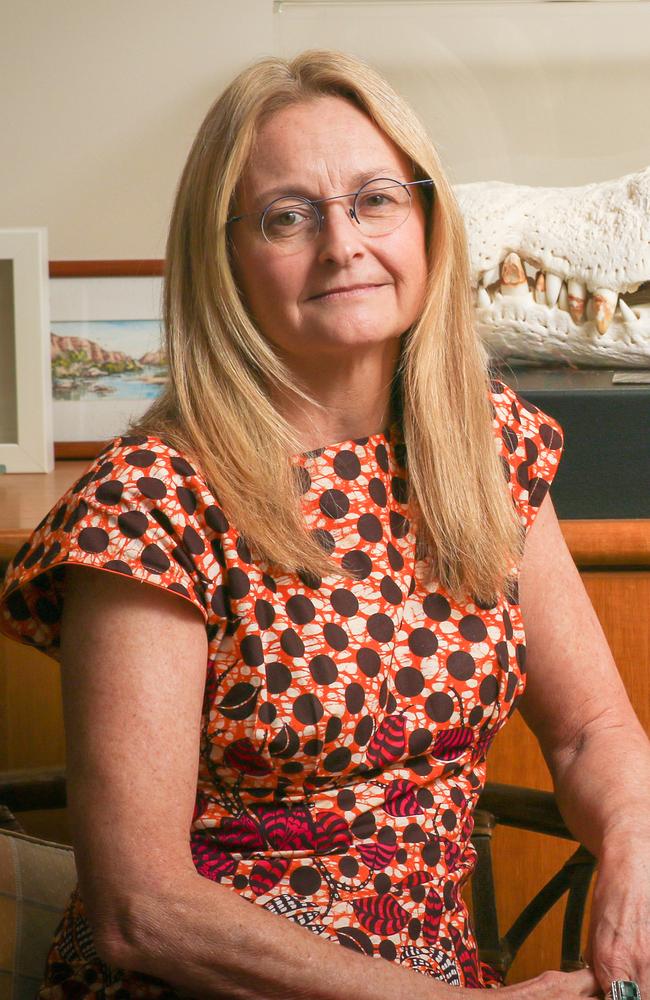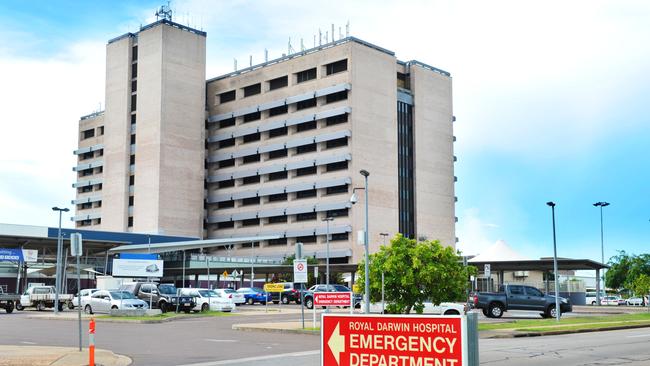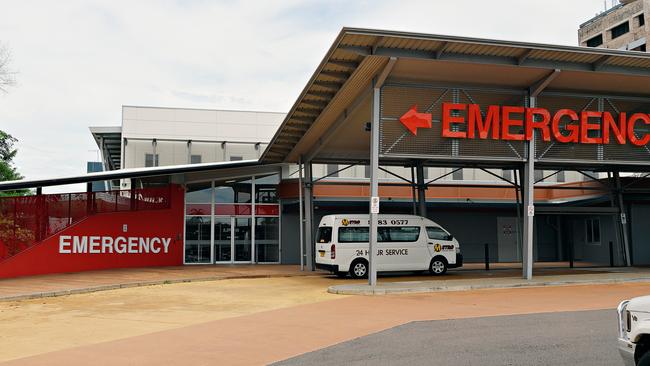NT Coroner told the ‘tragic reality’ of mother‘s death in care at Royal Darwin Hospital
A mother-of-two found laying naked in the sun during a mental health episode was flown to Royal Darwin Hospital. But doctors told the NT Coroner her psychosis soon revealed a much more dangerous medical issue.

Police & Courts
Don't miss out on the headlines from Police & Courts. Followed categories will be added to My News.
A Top End mother spent seven hours in a Darwin hospital bed as an undiagnosed growth slowly ‘squeezed out’ her heart, but a coroner has heard even if the rare condition was discovered nothing could have been done to save her.
A mandatory inquest into the death in care of a 35-year-old Indigenous mother will assess if anything could have been done to diagnose the rare heart condition.
Coroner Elisabeth Armitage heard the woman, who her family asked to be referred to as Janelle, was flown from Bulman to Royal Darwin Hospital after being sectioned under the Mental Health Act on July 3, 2021.

Before the flight, remote medical staff flagged the irregularities in her vital signs, the symptoms that an autopsy would later confirm as an aortic dissection possibly due to a bacterial infection.
Counsel assisting the coroner Chrissy McConnel said the mandatory death in care coronial was not making any allegation of sub-standard care in the hospital.
Ms McConnel said a “tension” with the Health Department would investigate if an additional test, computerised tomography coronary angiogram, would have discovered Janelle’s heart condition.
“The tragic reality though, is that even if an earlier diagnosis of aortic dissection had been made Janelle could not have been saved as the RDH does not have a cardiothoracic surgery service,” Ms McConnel said.
“Therefore she could not have received the urgent surgical treatment to treat such a condition.”

Specialist emergency physician Nicolas Forget said given the diagnostic complexities, testing all cardiac patients for the rare heart condition would cause the Emergency Department to grind to a halt.
Even if doctors had the most “miraculous” speed to diagnose and transport her, Dr Forget said it would have taken 12 hours to get to the specialist surgical ward in Adelaide.
He said given Janelle’s rapid decline, there was nothing that could have been done to save her.
The coroner heard Janelle was at Weemol community, Bulman, for a funeral and to visit family when she became “agitated, (and started) yelling and walking around the community naked and throwing rocks at family who were trying to approach her”.
“(She said) she was hearing loud noises and that she didn’t want her family around because they were judging her,” Ms McConnel said.
Ms McConnel said Janelle was diagnosed with schizoaffective disorder with a secondary diagnosis of bipolar disorder when she was 20, and had been admitted to the acute mental health Cowdy Ward at RDH four times since 2006.
She said Janelle was prescribed monthly injections of Paliperidone, commonly known as depot, but her treatment was “sporadic”.
But Dr Forget said given she was from a remote community, her consistency with her mental health plan was “remarkable”, and the coroner heard Janelle had her injection just days before the psychotic episode.
Dr Forget said cannabis use could have “triggered” her mental health issues.
Remote access nurse Amanda de Deuge told the coroner she was able to convince the naked woman to travel to the Bulman clinic, where they first noticed the 35-year-old’s unusual vital signs, with a fast respiratory rate and low blood pressure.
The on-call duty medical officer Dr Jill Farrer recommended Janelle be sectioned — be taken as an involuntary patient to hospital — due to the potential risk to herself and others.
Dr Farrer prescribed 10 milligrams of Olanzapine, an antipsychotic, and 10 milligrams of Diazepam, to calm her, before the 2.20pm CareFlight to Darwin.

The coroner heard Janelle declined pain medication but complained to the on-board doctor Emma Zorab of a sharp chest pain.
Dr Forget said her calm and declining pain levels was highly unusual for an aortic dissection, with patients usually describing an “extreme pain” as their heart were “squeezed out” by a growing fluid sack.
Ms McConnel asked if the antipsychotic and calming medication given before her flight, or the fact that English was not Janelle’s first language, could have impacted her description of her condition.
“It’s a question I’ve wondered a lot,” Dr Forget said.
He said there was no Aboriginal Liaison Officer available after hours, and the idea of hospital translators was “not realistic” given the high demand for their services.
Dr Forget said in his decades of emergency medical work, he had only treated 10 cases of aortic dissection and never in a woman as young as Janelle.
He said the only way to conclusively diagnose it from myriad other heart problems was a “high stakes” radiation technique.
Dr Forget said testing every patient with her symptoms for the condition would grind the system to a halt, highlighting that on that night the ward was already “double bunked”.





